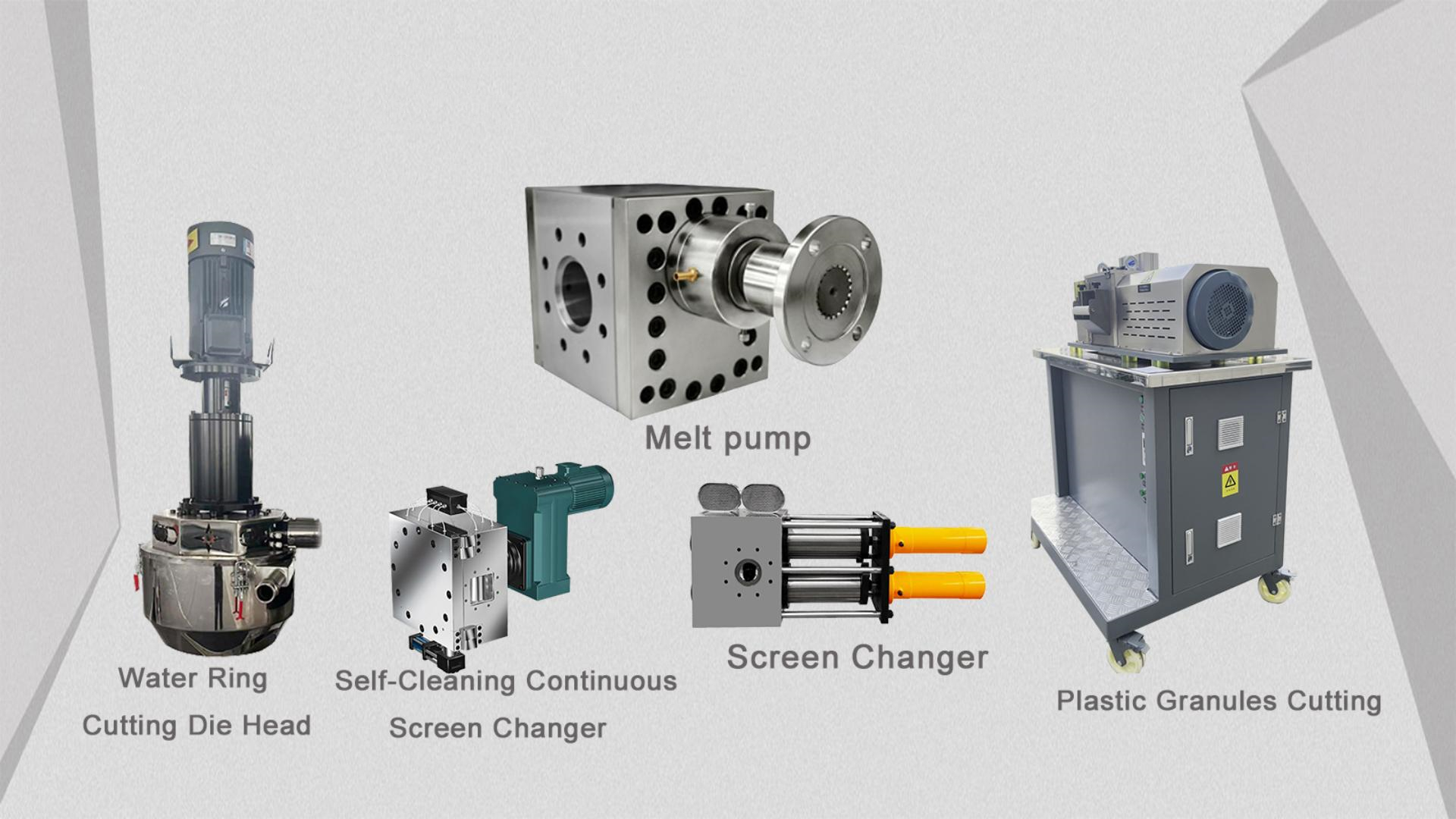
The working principle of the extrusion melt pump is to transport the melt by the change in working volume caused by the meshing of the main and driven gears. Firstly, the extruder melt pump is a positive displacement conveying device, and the flow rate is strictly proportional to the pump speed. It mainly consists of pump casing, driving gear, driven gear, sliding bearings, front and rear end plates, packing seals, etc. During work, the molten material is transported by the change in working volume caused by the meshing of the main and driven gears.
Specifically, when the gear rotates in the specified direction, the melt enters the grooves of the two gears in the feed area. As the gears rotate, the melt is brought into the feeding area from both sides. The re meshing of gears causes the molten material in the tooth groove to be squeezed out of the discharge area and pushed to the outlet pipeline. As long as the pump shaft rotates, the gear will press the melt towards the outlet side, so the pump outlet can reach a very high pressure, and there are no high requirements for the inlet flow rate and pressure, and even the inlet vacuum suction can be achieved.
In addition, the extruder melt pump also has the function of boosting and isolating pressure. When the material at the outlet of the extrusion melt pump is subjected to resistance generated by the forming mold, the gears in the extruder melt pump act like pistons in a cylinder, exerting a squeezing effect on the melt in the discharge area, achieving the pressure boosting function of the extruder melt pump. At the same time, the gears in the pump act as a rotating barrier, effectively blocking the impact of pressure and flow fluctuations in the feed area on the discharge area.
Contact: Asha Lee
Phone: +86-17796651219
Whatsapp: +86-17796651219
Add: Zhongyuan district Zhengzhou China